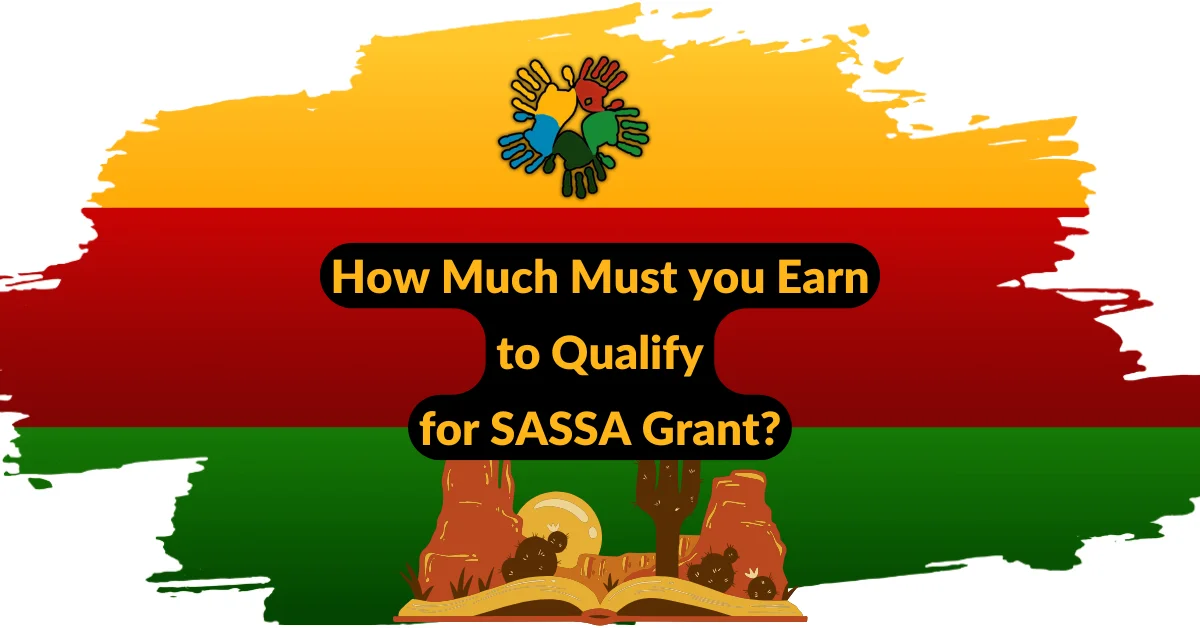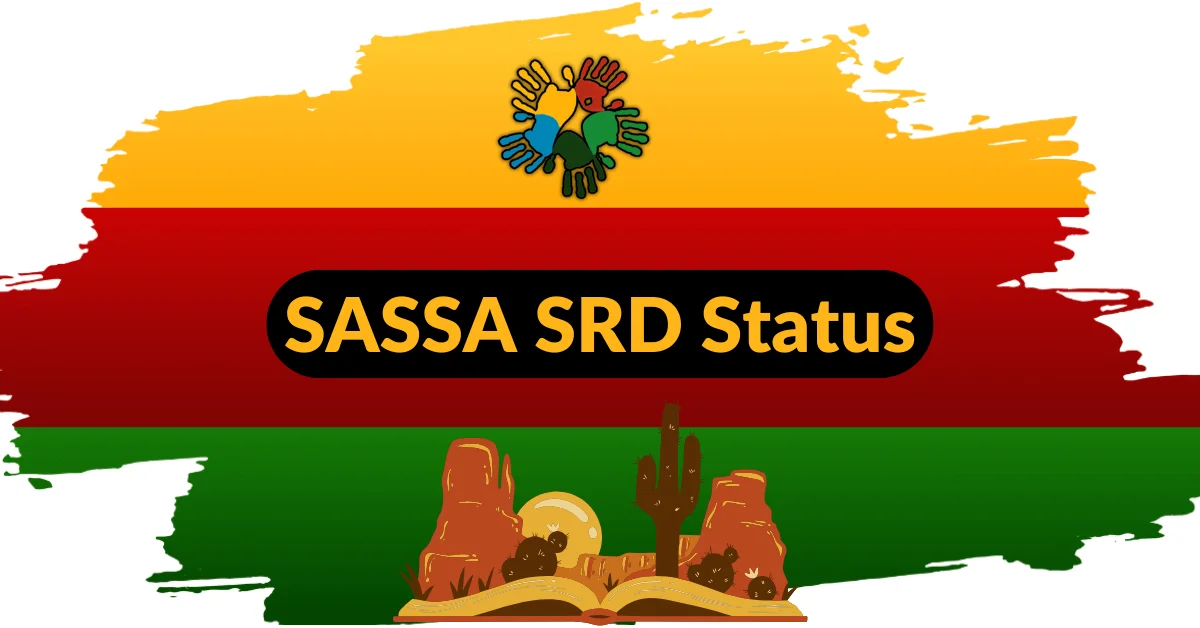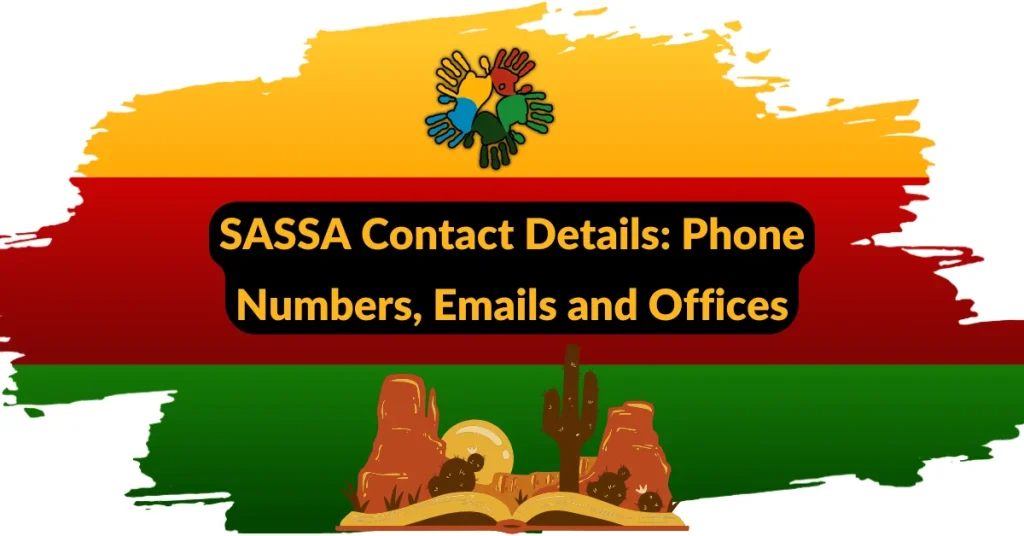Have you ever wondered, Do I earn too much to qualify for a SASSA grant? Many South Africans miss out on critical financial support simply because they don’t understand the income requirements.
These limits determine whether you can receive grants designed to help individuals and families in need.
Let’s break down the income thresholds for each type of SASSA grant so you can be confident about your eligibility.
How Much Must you Earn to Qualify for SASSA Grant? (Quick Answer)
To qualify for SASSA grants, income limits vary: SRD grant requires less than R624 monthly. Child Support Grant limits are R5,000 (single) or R10,000 (married). Disability and Older Person’s grants allow up to R8,070 (single) or R16,140 (married). Foster Child Grant has no income limit.
Income Limits for SASSA Grants in 2025
SASSA grants come with specific income thresholds depending on the type of grant. These limits ensure that resources are directed toward those most in need. Below is a detailed breakdown of the income eligibility for each grant.
1. Social Relief of Distress (SRD) Grant
The SASSA SRD R370 grant is designed for people facing extreme financial hardship.
- Monthly Income Limit: Less than R624.
- Who Qualifies: Individuals with no alternative income sources or minimal earnings.
SASSA monitors your income for this grant every month. If your earnings exceed the limit, payments will stop.
2. Child Support Grant (CSG)
The Child Support Grant helps caregivers provide for children under 18.
- Single Caregivers: Income must be below R5,000 per month.
- Married Caregivers: Combined household income should be less than R10,000 per month.
Only your income matters if you’re single, but for married applicants, both spouses’ incomes are considered.
3. Care Dependency Grant (CDG)
This grant supports families caring for severely disabled children.
- Single Applicants: Income should be under R20,800 per month.
- Married Applicants: Combined monthly income should not exceed R41,600.
These higher limits reflect the significant costs of caring for a child with severe disabilities.
4. Disability Grant
The Disability Grant provides support for individuals with long-term disabilities that prevent them from earning a stable income.
- Single Applicants: Income must be below R8,070 per month or R96,840 annually.
- Married Applicants: Combined income should not exceed R16,140 per month or R193,680 annually.
These limits allow some flexibility for individuals earning modest amounts.
5. Older Person’s Grant
Seniors over the age of 60 may qualify for the Older Person’s Grant.
- Single Seniors: Income must be less than R8,070 per month.
- Married Seniors: Combined income should not exceed R16,140 per month.
This grant aims to assist retirees with little to no income in maintaining basic living standards.
6. Foster Child Grant
Unlike other grants, the Foster Child Grant has no income limit.
- Who Qualifies: Individuals caring for foster children.
This grant covers essential costs for foster care, regardless of the caregiver’s financial situation.
SASSA Means Test: Assets and Income
SASSA doesn’t only assess your income when determining eligibility. They also look at your assets during the means test. Assets like property, investments, and savings accounts can impact your application. Even if your income is below the required limit, having significant assets might disqualify you.
Income Limits for SASSA Grants
| SASSA Grant Type | Single Applicant Limit | Married Applicant Limit |
| SRD Grant | Less than R624/month | Less than R624/month |
| Child Support Grant | Less than R5,000/month | Less than R10,000/month |
| Care Dependency Grant | Less than R20,800/month | Less than R41,600/month |
| Disability Grant | Less than R8,070/month | Less than R16,140/month |
| Older Person’s Grant | Less than R8,070/month | Less than R16,140/month |
| Foster Child Grant | No income limit | No income limit |
What Happens If You Earn Too Much?
If your income exceeds the limits for a specific grant, SASSA will likely reject your application. However, you can reapply if your financial situation changes. For ongoing grants like the SRD grant, SASSA conducts regular checks to ensure continued eligibility.
How to Ensure SASSA Eligibility?
To increase your chances of qualifying for a SASSA grant:
- Understand the Income Limits: Refer to the table above for your specific grant type.
- Prepare Documentation: Have proof of income (e.g., payslips or bank statements) and details of your assets ready.
- Be Honest: Provide accurate information during the application process to avoid complications.
- Update SASSA About Changes: If your income or circumstances change, notify SASSA promptly.
Conclusion
Knowing how much you can earn to qualify for a SASSA grant is crucial. The income thresholds vary by grant type, ensuring the financial support goes to those who need it most.
From the strict R624 limit for the SRD grant to the more flexible limits for Care Dependency and Disability grants, understanding these requirements can save you time and effort during the application process.
Keep your financial records in order, stay informed, and check your eligibility before applying. SASSA grants are designed to uplift those in need ensure you meet the criteria to access this essential support.

My name is Zanele Dlamini, and I write to help people understand their SASSA status and benefits. I share clear and simple information about grants, payments, and requirements to make it easier for South Africans to get the support they need. My goal is to make the process simple for everyone.



![How to SASSA Change Phone Number for SRD Grant Online? [2025] How to SASSA Change Phone Number for SRD Grant Online? [2025]](https://sassasrdgovza.com/wp-content/uploads/2024/11/SASSA-Change-Phone-Number-for-SRD-Grant-1024x536.webp)


